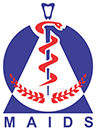Filter
Ans. Toothache pain is very uncomfortable and can vary, depending on why it occurs. It can be described as throbbing, intermittent or continuous. The pain worsens when eating or drinking hot or cold food and beverages, and intensifies when lying down.
Ans. Caries is the most common cause of toothache. It is the decay of tooth enamel caused by the acidic action of plaque. Dental plaque is composed of bacteria, saliva, food debris and other substances. The bacteria metabolize the sugars, transforming them into corrosive acids. The acids corrode the tooth enamel, and lead to decay.
Ans. Toothache pain is very uncomfortable and can vary, depending on why it occurs. It can be described as throbbing, intermittent or continuous. The pain worsens when eating or drinking hot or cold food and beverages, and intensifies when lying down.
Ans. Caries is the most common cause of toothache. It is the decay of tooth enamel caused by the acidic action of plaque. Dental plaque is composed of bacteria, saliva, food debris and other substances. The bacteria metabolize the sugars, transforming them into corrosive acids. The acids corrode the tooth enamel, and lead to decay.
Ans. The type and intensity of the pain depends on how deep the caries is. During the initial phase, the pain is acute but brief. It is usually associated with a specific event, like eating something hot or cold. The deeper the decay, the more intense the pain - it can be dull or throbbing. When the caries reaches the dental pulp, the pain becomes continuous and severe.
Ans. Dental abscess is an inflammation caused by the formation of pus. Pus is a substance composed of bacteria, dead cells and other microorganisms. There are two main types of oral cavity abscesses.
Dental abscess is an inflammation of the tooth pulp. It generally results from a caries, or tooth decay. Pus forms at the tip of the tooth root. Gingival abscess is an inflammation of the gums, resulting from typical gum diseases such as periodontitis. Pus forms in the gum crevices caused by periodontitis.
Ans. Tooth decay, pulpitis and abscesses should be treated by a dentist. In the meantime, the pain can be relieved in various ways. One remedy is the use of cold applications. An ice pack placed on the painful areas will anesthetize the nerve endings. Keeping your head raised reduces the pain, but lying down makes it worse because it raises blood pressure in the head. If the pain is very strong, nonprescription pain relievers can be taken, such as nonsteroidal anti-inflammatory drugs (NSAIDS). If infection is present, a regimen of antibiotics should be taken, as prescribed by a physician.
Ans. The best prevention against toothache is to practice regular oral hygiene. Teeth should be brushed at least 3 times a day and brushed individually - including the inside surfaces. Brush your tongue, as well. Do not brush too energetically, otherwise you will damage the tooth enamel. Dental floss should also be used regularly and made part of an oral hygiene regimen.
Ans. Bad breath is a very common problem and there are many different causes. Persistent bad breath is usually caused by the smelly gases released by the bacteria that coat your teeth and gums. However, strong foods like garlic and onions can add to the problem. Smoking is also one of the main causes of bad breath, along with certain illnesses such as nasal and stomach conditions. Bits of food that get caught between the teeth and on the tongue will rot and can sometimes cause an unpleasant smell. So correct and regular brushing is very important to keep your breath smelling fresh. The bacteria on our teeth and gums (plaque) also cause gum disease and dental decay. If you see your dentist regularly this will not only help prevent bad breath but will also let the dentist look for and treat these problems.


 Maulana Azad Institute of Dental Sciences
Maulana Azad Institute of Dental Sciences


